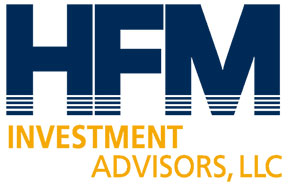
Should You Consider Auto-Features for Your Retirement Plan?
Auto-enrollment and auto-escalation are now standard for new plans. But how can you know if these “table-stakes” are a good option for your plan?
Studies have shown that auto-features, such as auto-enrollment and auto-escalation,
help boost participation and savings rates. However, not all plans offer these plan design features, and existing plans aren’t obligated to adopt them. Under the SECURE Act 2.0, new 401(k) and 403(b) plans must include auto-enrollment and auto-escalation, beginning in 2025. Choosing to include automatic features in your retirement plan design is an important and potentially complex decision.
Here are some key factors to consider.
Auto-features explained
Auto-enrollment as a retirement plan design feature automatically enrolls eligible employees to contribute a predetermined percentage of their salary to the plan unless they opt out. Auto-escalation refers to a plan feature that automatically increases an employee’s contribution rate at regular intervals (typically annually) by a preset percentage, unless the employee actively chooses otherwise.
Document, document, document
Retirement plan committees should carefully weigh the decision to adopt or not adopt automatic features. It can be invaluable to have a structured process and thoroughly document all discussions, the data considered, and the rationale for specific decisions (i.e., in meeting minutes) for future reference. Documentation provides evidence of prudent decision-making and demonstrates compliance with ERISA standards. Specifically, in case of an audit or legal challenge, documentation can be used to prove that the committee made decisions thoughtfully and in the participants’ best interest, potentially helping shield plan sponsors from fiduciary liability.
Evaluating auto-enrollment for your plan
Although automatic enrollment may be a good fit for many plans, they aren’t always the best option. Here are some scenarios where auto-enrollment can be highly effective.
When auto-enrollment works well
- Organized HR teams: Generally, companies with well-structured human resources departments can more easily manage the implementation and ongoing administration of auto-enrollment.
- Stable employee populations: Organizations with low turnover rates often benefit from the consistency that auto-enrollment provides. This stability allows for more predictable long-term planning, reduces administrative workload, and helps foster a company culture that encourages retirement saving.
- Integrated payroll: Integration between payroll and the plan’s recordkeeping system is crucial to achieve the success of auto-enrollment. Real-time data exchange reduces errors, automates updates, and minimizes manual work, which can support operational efficiency and compliance efforts.
When auto-enrollment may not be ideal
- High-turnover environments: Companies with frequent employee churn may find auto-enrollment administratively challenging and less effective.
- Manual payroll processes: The administrative complexities auto-enrollment introduces may be a challenge for employers relying on manual payroll systems.
- Hourly employees/variable pay structures: Auto-enrollment may not be ideal for organizations with a significant number of hourly workers or frequently-changing pay structures.
- Outdated HR technology: Companies lacking modern, integrated HR systems may find it more difficult to effectively implement and manage auto-enrollment.
When auto-escalation works well
- Stable workforces: Organizations with low turnover and predictable salary structures may benefit from auto-escalation.
- Predictable salaries: Employees with regular, predictable pay increases are more likely to adapt well to gradual increases in their retirement contributions.
- Integrated technology: Integrated payroll and recordkeeping systems are essential to keeping up with the administrative demands auto-escalation requires.
Downsides of auto-escalation
- High turnover: Low employee retention can complicate the administration of a plan with auto-escalation features.
- Frequently adjusted compensation: In organizations with variable pay structures or frequent compensation changes, deferral percentages may require constant adjustment. This can potentially lead to over- or under-contributions and increased administrative complexity, making auto-escalation challenging to manage.
- Lack of integrated technology: Without seamless integration between payroll and recordkeeping systems, implementing auto-escalation can be error-prone and resource-intensive.
Making the choice for your plan
Implementing auto-features in your retirement plan is a significant decision that requires careful consideration. While these features can dramatically improve participation and savings rates, they may not be suitable for every plan.
When evaluating whether to implement auto-enrollment or auto-escalation, consider the following:
- Your workforce demographics and turnover rates
- The sophistication of your HR and payroll systems
- Your ability to manage the additional administrative requirements
- The potential impact on employee satisfaction and financial well-being
Thinking about auto-features for your retirement plan? Let us help you decide. Our team can guide you through the evaluation process, helping you design a retirement plan that serves your organization and employees.
About Your New Jersey Retirement Advisors
We believe that everyone should have the tools and resources necessary to build retirement wealth successfully. At HFM Investment Advisors, we are passionate about:
- Offering fiduciary training and defending against plan risks.
- Empowering your employees to save and better prepare for their future.
- Building effective retirement plans and investment strategies tailored to your specific goals.
As your 401(k) specialists, We take the time to understand your goals and are not afraid to dedicate the time, energy and resources needed to exceed your expectations. Talk to a 401(k) Expert.

102 WEST HIGH STREET, SUITE 200
GLASSBORO, NJ 08028
HFM Investment Advisors, LLC is a registered investment adviser. All statements and opinions expressed are based upon information considered reliable although it should not be relied upon as such. Any statements or opinions are subject to change without notice. Information presented is for educational purposes only and does not intend to make an offer or solicitation for the sale or purchase of any specific securities, investments, or investment strategies. All investments involve risk and are not guaranteed. Information expressed does not take into account your specific situation or objectives and is not intended as a recommendation appropriate for any individual. Listeners are encouraged to seek advice from a qualified tax, legal, or investment advisor to determine whether any information presented may be suitable for their specific situation. Past performance is not indicative of future performance.
©401(k) Marketing, LLC. All rights reserved. Proprietary and confidential. Do not copy or distribute outside original intent.
